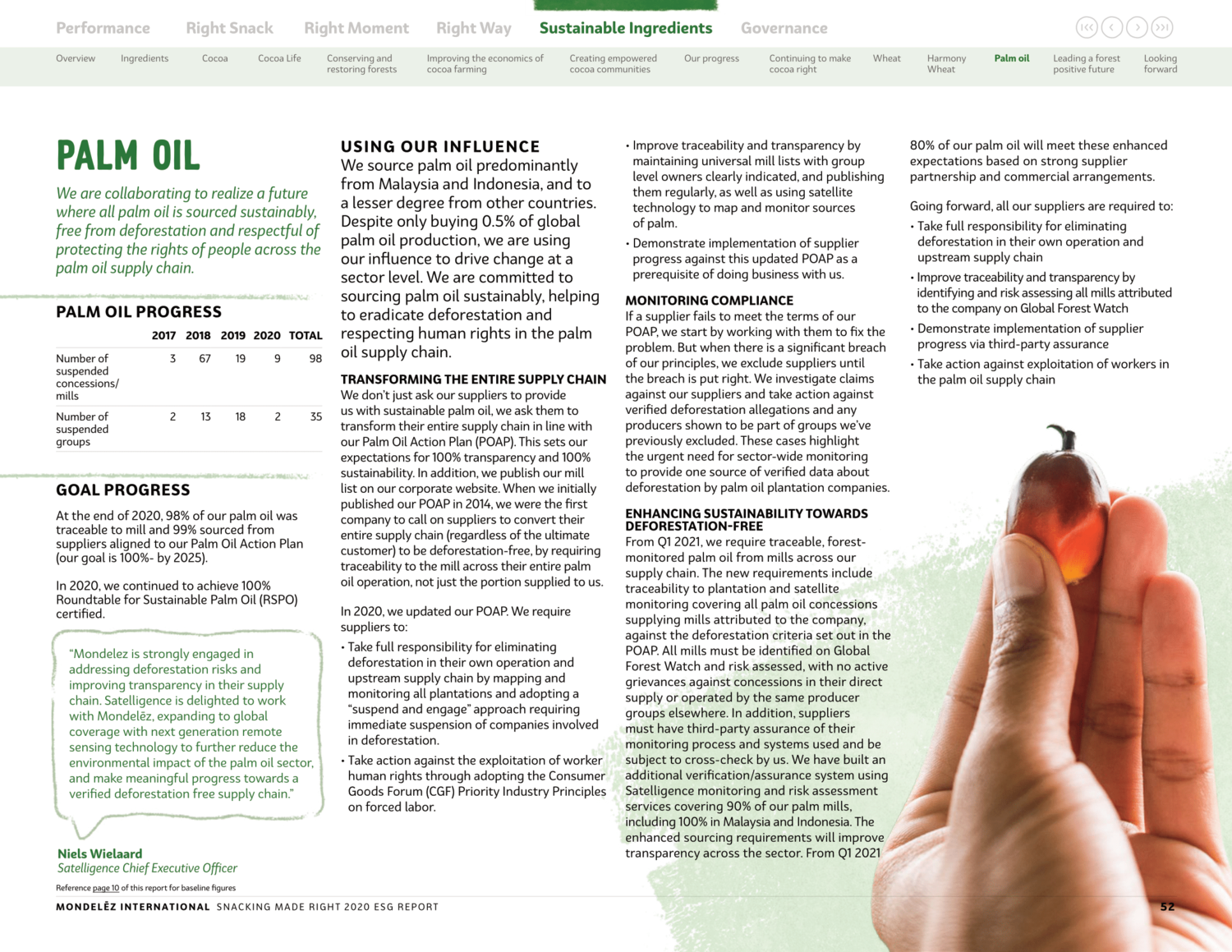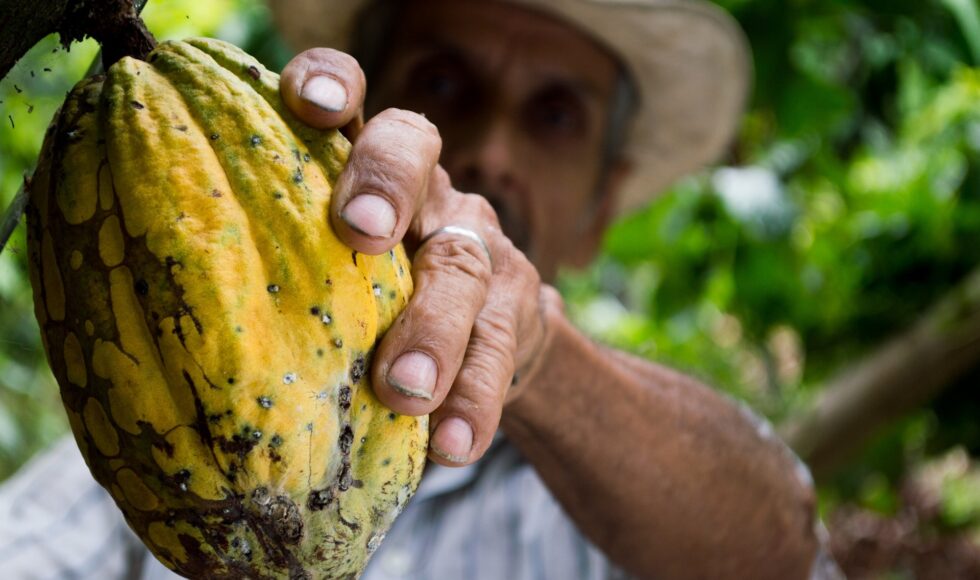The Project
At Satelligence, we help FMCGs (Fast-Moving Consumer Goods) companies, such as Mondelēz, by pinpointing supply chain risks and reporting on progress towards sustainability commitments.
Mondelez Global LLC (Mondelēz) is an American multinational confectionery, food, holding and beverage and snack food company based in Chicago, Illinois. The company operates in approximately 160 countries and employs around 80,000 people in its factories, offices, research & development facilities and distribution activities around the world.
From Q1 2021, Mondelez require traceable, forest monitored palm oil from mills across otheir supply chain. The new requirements include traceability to plantation and satellite monitoring covering all palm oil concessions supplying mills attributed to the company, against the deforestation criteria set out in the POAP.
Satelligence is proud to announce an exciting collaboration with Mondelēz International, providing traceable, forest-monitored and sustainable palm oil production. In choosing our technology, we will enhance plantation tracing and provide satellite monitoring covering their palm oil concessions and supply mills. We say yes to deforestation-free production.
The Challenge
Mondelēz International has recently announced significant progress in advancing requirements for traceable, forest-monitored palm oil and confirms strong progress against sustainable sourcing goals. The new requirements include traceability to plantation and satellite monitoring covering all palm oil concessions* supplying mills attributed to the company, against the deforestation criteria set out in its Palm Oil Action Plan. All mills must be identified on Global Forest Watch, with no active grievances against concessions in their direct supply, or operated by the same producer groups elsewhere. In addition, suppliers must have third-party assurance of their monitoring process and systems used and be subject to cross-check by Mondelēz International.
The Solution
From Q1 2021, the company expects 80% of its palm oil to meet these enhanced expectations with strong supplier partnership, working to increase coverage as quickly as possible.
The enhanced sourcing requirements will improve transparency across the sector by requiring suppliers to confirm sustainable sourcing practices across their entire supply chain by 2025, not just the portion supplied to Mondelēz International. They form part of Mondelēz International long-term ambition to eliminate deforestation and forced labor in the palm oil supply chain and support the aims of the Consumer Goods Forum #Forestpositive Coalition.
The growing demand for deforestation-free supply chains of commodities like palm oil has increased the need for both monitoring and engagement on the ground. In order to take action, Mondelēz required new technology and reliable data to make the right decisions and move towards more sustainable supply chains.
Mondelez have built an additional verification/assurance system using Satelligence monitoring and risk assessment services covering 90% of our palm mills, including 100% in Malaysia and Indonesia. The enhanced sourcing requirements will improve transparency across the sector. From Q1 2021, 80% of Mondelez palm oil will meet these enhanced expectations based on strong supplier partnership and commercial arrangements.
Mondelez 2020 Sustainability Report

The Impact
Any supplier to Mondelēz International will be required to:
- Take full responsibility for eliminating deforestation in their own operation and upstream supply chain by providing traceability to plantation and satellite monitoring covering all palm oil concessions* supplying mills attributed to the company.
- Improve traceability and transparency by identifying all mills attributed to the company on Global Forest Watch, with no active grievances against concessions in their direct supply, or operated by the same producer groups elsewhere.
- Demonstrate implementation of supplier progress via third-party assurance of their monitoring process and systems.
- Take action against exploitation of workers in the palm oil supply chain by strengthening our supplier expectations on Human Rights – spelling out the due diligence steps we expect them to follow in order to identify and mitigate risks in their own operations and supply chain.
